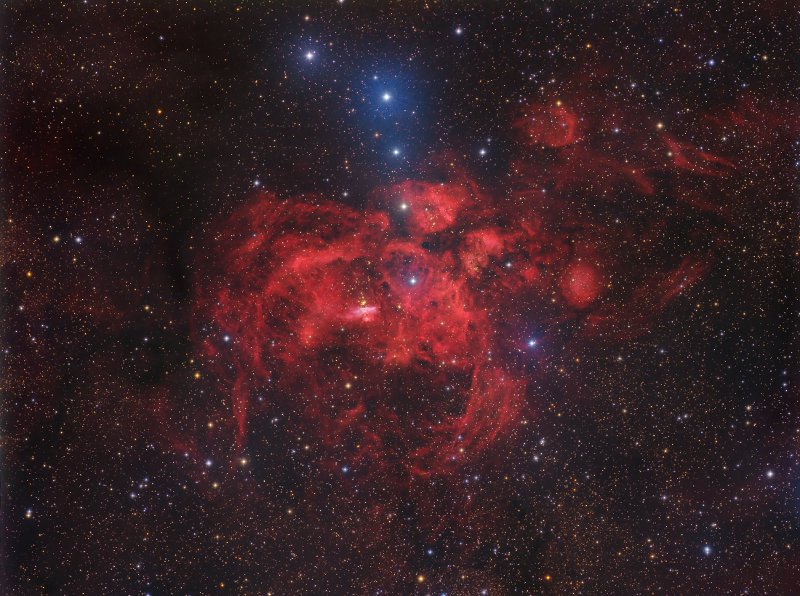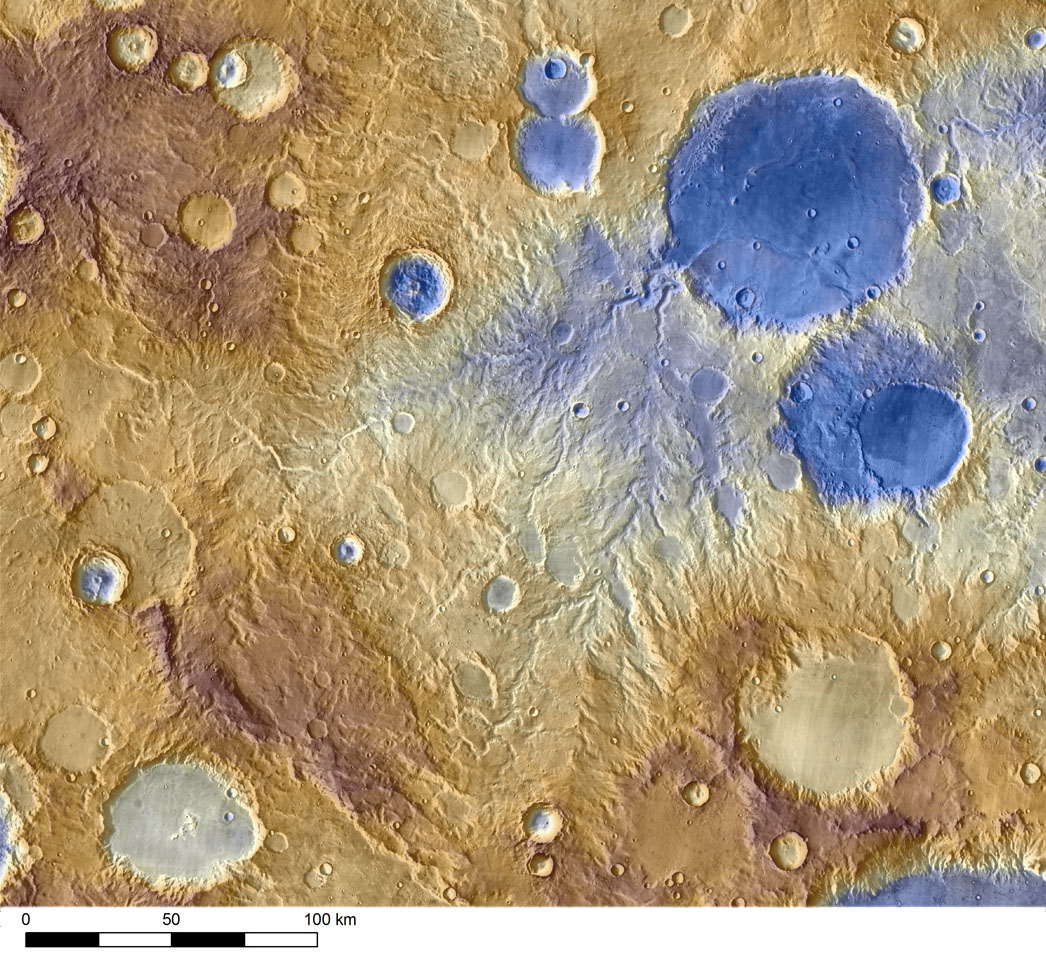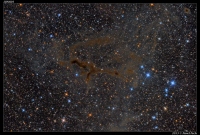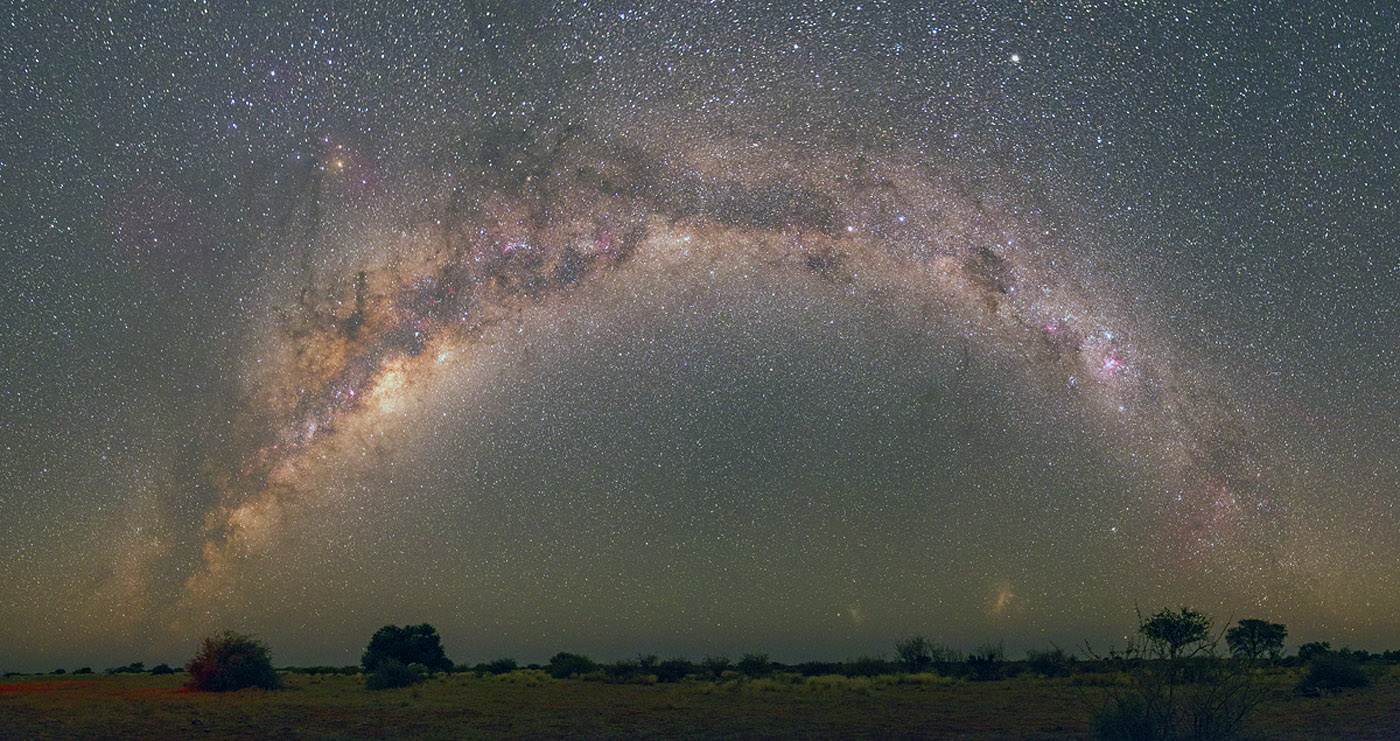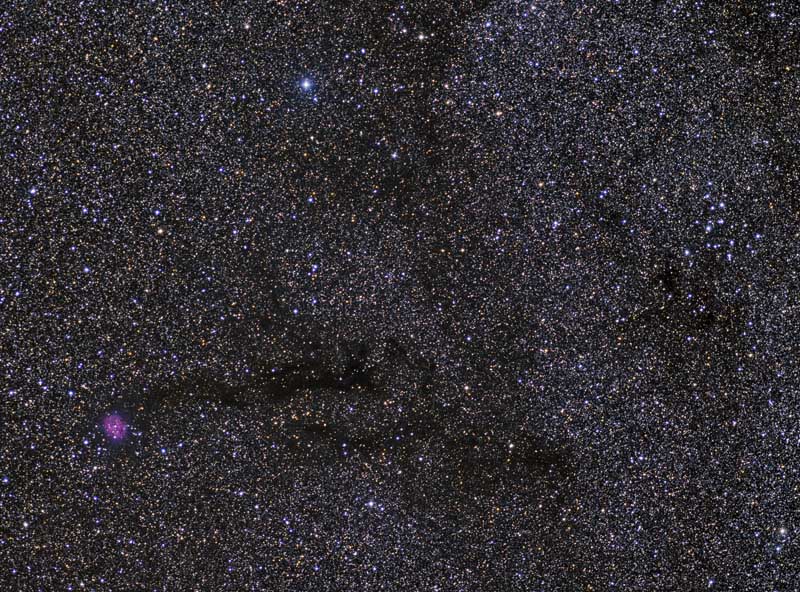Submissions: 2013 July
Re: Submissions: 2013 July
NGC 6357 Lobster Nebula
Copyright: Marcin Paciorek
http://www.astromarcin.pl/pages/ngc6357.html
Tivoli, Namibia
Copyright: Marcin Paciorek
http://www.astromarcin.pl/pages/ngc6357.html
Tivoli, Namibia
Re: Submissions: 2013 July
Corona around last night's waning gibbous moon (caused by passing low clouds):
Last edited by owlice on Fri Jul 26, 2013 4:20 am, edited 2 times in total.
Reason: Changed double rainbow to corona
Reason: Changed double rainbow to corona
Re: Submissions: 2013 July
NGC 6960 "The Witches Broom" in narrow band- Ha + OIII
Copyrights: James Collins
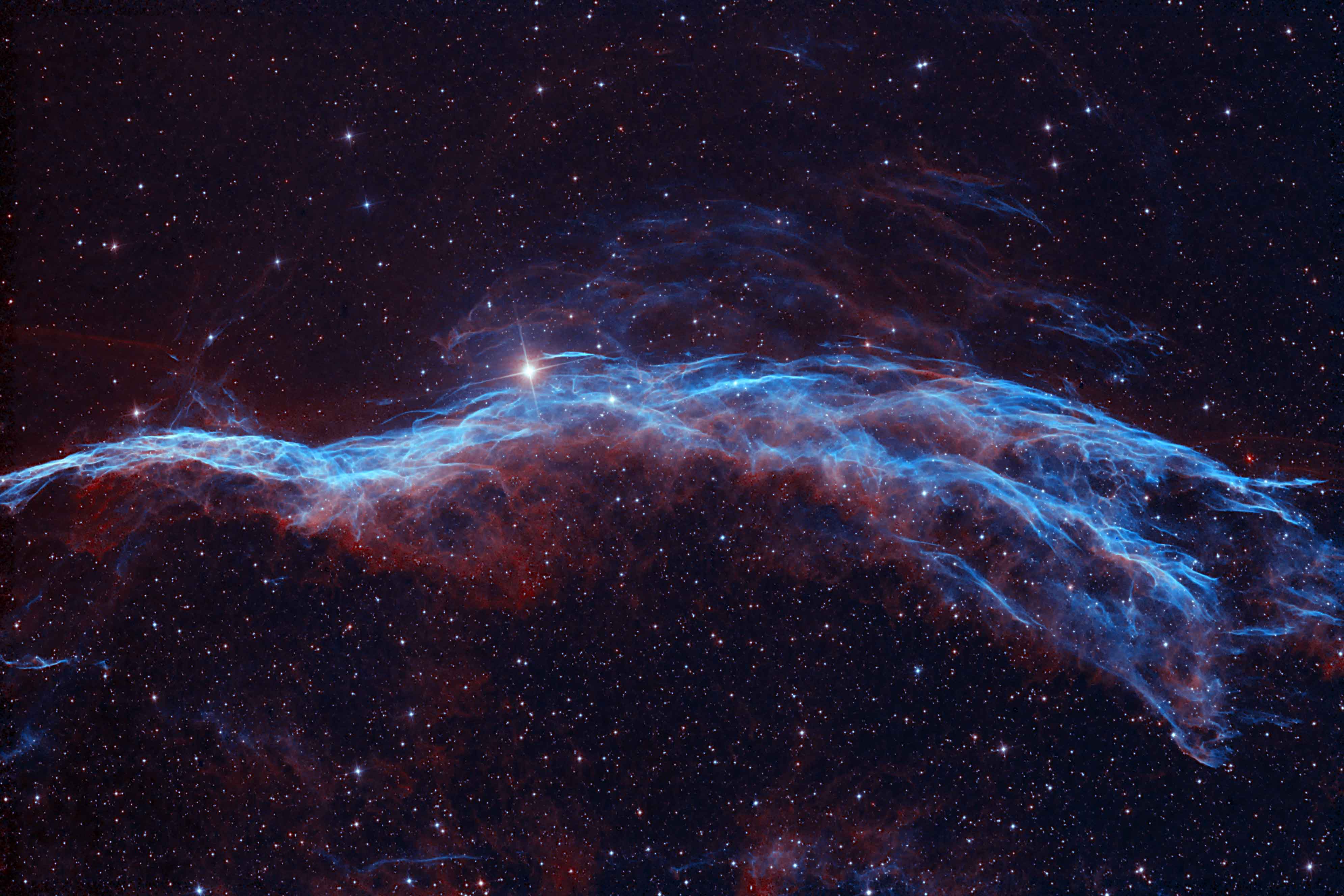
Larger image URL:
http://jimstar11.com/NGC6960_Bicolor-sm.jpg
Web Site: Meadow View Observatory
http://jimstar11.com
Copyrights: James Collins

Larger image URL:
http://jimstar11.com/NGC6960_Bicolor-sm.jpg
Web Site: Meadow View Observatory
http://jimstar11.com
Barnard 344 in Hubble paletten and HaRGB
Full resolution images:
HaRGB
Hubble palette
Copyright: André van der Hoeven - www.astro-photo.nl
Barnard 344 is a dark nebula in the constellation of Cygnus. It’s located close to the star Sadr in the Gamma Cygni Nebula. Barnard 344 is located on the bottom of the image.
This region is very rich of dark and emission nebulae. LBN234 is an emission nebula glowing with hydrogen and sulphur.
Telescope: TEC-140
Camera: QSI-583
Mount: Skywatcher NEQ-6
H-alpha: 6 x 1800 s (3nm astrodon)
SII: 3 x 1800 s (3nm astrodon)
OIII: 4 x 1800 s (3nm astrodon)
RGB: (4,4,4) x 600 s (astrodon TrueRGB)
HaRGB
Hubble palette
Copyright: André van der Hoeven - www.astro-photo.nl
Barnard 344 is a dark nebula in the constellation of Cygnus. It’s located close to the star Sadr in the Gamma Cygni Nebula. Barnard 344 is located on the bottom of the image.
This region is very rich of dark and emission nebulae. LBN234 is an emission nebula glowing with hydrogen and sulphur.
Telescope: TEC-140
Camera: QSI-583
Mount: Skywatcher NEQ-6
H-alpha: 6 x 1800 s (3nm astrodon)
SII: 3 x 1800 s (3nm astrodon)
OIII: 4 x 1800 s (3nm astrodon)
RGB: (4,4,4) x 600 s (astrodon TrueRGB)
Re: Submissions: 2013 July
Barnard's galaxy floating among the Integrated Flux Nebulae.
There is a little surprise in the upper right of the image - the Planetary nebula NGC6818
Full resolution and details:
http://www.pbase.com/tango33/image/151505563
Thanks for looking!
Kfir Simon

There is a little surprise in the upper right of the image - the Planetary nebula NGC6818
Full resolution and details:
http://www.pbase.com/tango33/image/151505563
Thanks for looking!
Kfir Simon

-
Turnit Tops
- Ensign
- Posts: 38
- Joined: Thu Jun 27, 2013 8:26 am
Re: Submissions: 2013 July
Copyright: ALMA / ESO
Caption: New observations from the ALMA telescope in Chile have given astronomers the best view yet of how vigorous star formation can blast gas out of a galaxy and starve future generations of stars of the fuel they need to form and grow. The dramatic images show enormous outflows of molecular gas ejected by star-forming regions in the nearby Sculptor Galaxy. These new results help to explain the strange paucity of very massive galaxies in the Universe. The study is published in the journal Nature on 25 July 2013.
Full story: http://www.eso.org/public/news/eso1334/, http://www.nrao.edu/pr/2013/starburst-bust/
http://asterisk.apod.com/viewtopic.php?f=31&t=31805
----------------------------------------------------------
Copyright: NASA
Caption: Mars from the Odyssey spacecraft -- Researchers at Brown University have shown that some Martian valleys appear to have been caused by runoff from orographic precipitation — moisture carried part of the way up a mountain and deposited on the slopes. Water-carved valleys on Mars appear to have been caused by runoff from precipitation, likely meltwater from snow. Early Martian precipitation would have fallen on mountainsides and crater rims.
Full story: http://news.brown.edu/pressreleases/2013/07/snow
----------------------------------------------------------
Copyright: Chris Samuel
Caption: Comet C/2011 L4 PANSTARRS over Upper Ferntree Gully here in Australia. It was taken from the back veranda of our house on a windy evening (hence the tree motion and the slight blurring) just before it set behind the ridge behind our house. I thought the trees gave it a nice sense of scale.
Full image: http://www.flickr.com/photos/chrissamuel/8523045883/
Caption: New observations from the ALMA telescope in Chile have given astronomers the best view yet of how vigorous star formation can blast gas out of a galaxy and starve future generations of stars of the fuel they need to form and grow. The dramatic images show enormous outflows of molecular gas ejected by star-forming regions in the nearby Sculptor Galaxy. These new results help to explain the strange paucity of very massive galaxies in the Universe. The study is published in the journal Nature on 25 July 2013.
Full story: http://www.eso.org/public/news/eso1334/, http://www.nrao.edu/pr/2013/starburst-bust/
http://asterisk.apod.com/viewtopic.php?f=31&t=31805
----------------------------------------------------------
Copyright: NASA
Caption: Mars from the Odyssey spacecraft -- Researchers at Brown University have shown that some Martian valleys appear to have been caused by runoff from orographic precipitation — moisture carried part of the way up a mountain and deposited on the slopes. Water-carved valleys on Mars appear to have been caused by runoff from precipitation, likely meltwater from snow. Early Martian precipitation would have fallen on mountainsides and crater rims.
Full story: http://news.brown.edu/pressreleases/2013/07/snow
----------------------------------------------------------
Copyright: Chris Samuel
Caption: Comet C/2011 L4 PANSTARRS over Upper Ferntree Gully here in Australia. It was taken from the back veranda of our house on a windy evening (hence the tree motion and the slight blurring) just before it set behind the ridge behind our house. I thought the trees gave it a nice sense of scale.
Full image: http://www.flickr.com/photos/chrissamuel/8523045883/
-
Turnit Tops
- Ensign
- Posts: 38
- Joined: Thu Jun 27, 2013 8:26 am
Re: Submissions: 2013 July
Copyright: Francisco Javier Pobes Serrano (http://www.astrofotoplanetaria.com/)
Caption: It is easy to know that the fate of this plane was not the moon, but if so ...
When taking this photograph the moon was at 361 038 km (224,338.61 miles), taking into account that the maximum speed of a commercial aircraft is around 804 km / h (500 miles / hour), it would take 449 hours to reach almost 19 days ...
But this is nothing if we tried to cover the distance that separates us from our star. The 149,600,000 miles that separate us, it would take over 21 years to visit them on the same plane, obviously both the former as the latter is impossible, but it is a good way to realize the enormous distances between “near”objects .
The photo is made on 23/07/2013, from Coslada (Madrid) 20:53:44 UT
-------------------------------------------------------------------
Copyright: Peter Remmel
Caption: a few days (7.12.2013) ago I took this picture of C/2012 F6 (Lemmon) in an interesting area with the Bulb nebula (NGC7635) and M52.
The camera is a QHY12; The telescope is a C14 f/1.9 (Hyperstar); 5X5MIN
-------------------------------------------------------------------
Copyright: Juan Carlos Casado
Caption:
I send you a recent night scape picture. It was obtained through the window of my room in the residence of Teide Observatory (Instituto de Astrofísica de Canarias).
It is a single exposure that shows the quality of the sky for astronomical observations in Canary Islands. Teide Observatory (http://www.iac.es/eno.php?op1=3&lang=en) is located on the island of Tenerife and has night and solar telescopes, and other detectors as, for example, cosmic background radiation. There are also robotic telescopes for educational use as TAD telescope (http://www.ot-tad.com), a project in which I collaborate.
Caption: It is easy to know that the fate of this plane was not the moon, but if so ...
When taking this photograph the moon was at 361 038 km (224,338.61 miles), taking into account that the maximum speed of a commercial aircraft is around 804 km / h (500 miles / hour), it would take 449 hours to reach almost 19 days ...
But this is nothing if we tried to cover the distance that separates us from our star. The 149,600,000 miles that separate us, it would take over 21 years to visit them on the same plane, obviously both the former as the latter is impossible, but it is a good way to realize the enormous distances between “near”objects .
The photo is made on 23/07/2013, from Coslada (Madrid) 20:53:44 UT
-------------------------------------------------------------------
Copyright: Peter Remmel
Caption: a few days (7.12.2013) ago I took this picture of C/2012 F6 (Lemmon) in an interesting area with the Bulb nebula (NGC7635) and M52.
The camera is a QHY12; The telescope is a C14 f/1.9 (Hyperstar); 5X5MIN
-------------------------------------------------------------------
Copyright: Juan Carlos Casado
Caption:
I send you a recent night scape picture. It was obtained through the window of my room in the residence of Teide Observatory (Instituto de Astrofísica de Canarias).
It is a single exposure that shows the quality of the sky for astronomical observations in Canary Islands. Teide Observatory (http://www.iac.es/eno.php?op1=3&lang=en) is located on the island of Tenerife and has night and solar telescopes, and other detectors as, for example, cosmic background radiation. There are also robotic telescopes for educational use as TAD telescope (http://www.ot-tad.com), a project in which I collaborate.
-
Marco Angelini
- Ensign
- Posts: 40
- Joined: Sat Jan 07, 2012 12:44 am
VdB 142: The Elephant Trunk Nebula in Cepheo
L-RGB Image of the gas and dust nebula VdB 142 called "The Elephant Trunk" and belonging to the wide complex IC1396 in Cepheo
Authors: F.Antonucci - M.Angelini -F.Tagliani ADARA Astrobrallo
http://www.astrobrallo.com
Details: http://www.astrobrallo.com/gallery/inde ... on-Ha-2013
Full-Res: http://www.astrobrallo.com/gallery/var/ ... 1374775318
Authors: F.Antonucci - M.Angelini -F.Tagliani ADARA Astrobrallo
http://www.astrobrallo.com
Details: http://www.astrobrallo.com/gallery/inde ... on-Ha-2013
Full-Res: http://www.astrobrallo.com/gallery/var/ ... 1374775318
-
Marco Angelini
- Ensign
- Posts: 40
- Joined: Sat Jan 07, 2012 12:44 am
VdB 142 - The Eelephant Trunk Nebula - enhanced version
This version of the previous image is a mix of a natural colours L-RGB composition and a Narrow Band (Ha-SII-OIII) composition of the same subject VdB 142
The Narrow Band contribution helps to increase the visibility of the fine details in the elephant's head and trunk as well as the distribution of the different ionized gases all around it.
Authors: F.Antonucci - M.Angelini - F.Tagliani ADARA Astrobrallo
http://www.astrobrallo.com
Details: http://www.astrobrallo.com/gallery/inde ... -1396-2013
Full-Res: http://www.astrobrallo.com/gallery/var/ ... 1374775329
The Narrow Band contribution helps to increase the visibility of the fine details in the elephant's head and trunk as well as the distribution of the different ionized gases all around it.
Authors: F.Antonucci - M.Angelini - F.Tagliani ADARA Astrobrallo
http://www.astrobrallo.com
Details: http://www.astrobrallo.com/gallery/inde ... -1396-2013
Full-Res: http://www.astrobrallo.com/gallery/var/ ... 1374775329
Re: Submissions: 2013 July
This is a Timelapse of my last trip to Norway on February , showing the hight aurora activity on those days. In the last part of the video you can see a real 24 fps video of and aurora taking with a Nikon D800 at 25600 iso and a 16-35 f4 lens at 16 f4, noise but real¡¡¡¡¡
Regards
Carlos Luis Vázquez Darias
http://www.loscielosdetenerife.es
Regards
Carlos Luis Vázquez Darias
http://www.loscielosdetenerife.es
-
FrankSackenheim
- Ensign
- Posts: 11
- Joined: Wed Apr 25, 2012 9:20 am
Re: Submissions: 2013 July
Hi,
after a long Break of almost one year, i´ve collected some new Data and processed the following images of the Pelican Nebula.
http://astrophotocologne.de/astrophotoc ... _Large.jpg
http://astrophotocologne.de/astrophotoc ... _Large.jpg
http://astrophotocologne.de/astrophotoc ... _Large.jpg
Hope you like it.
CS Frank
after a long Break of almost one year, i´ve collected some new Data and processed the following images of the Pelican Nebula.
http://astrophotocologne.de/astrophotoc ... _Large.jpg
http://astrophotocologne.de/astrophotoc ... _Large.jpg
http://astrophotocologne.de/astrophotoc ... _Large.jpg
Hope you like it.
CS Frank
Last edited by bystander on Fri Jul 26, 2013 1:02 am, edited 1 time in total.
Reason: please, no hot links to images > 400kb (file size), uploaded small images as attachments
Reason: please, no hot links to images > 400kb (file size), uploaded small images as attachments
-
Turnit Tops
- Ensign
- Posts: 38
- Joined: Thu Jun 27, 2013 8:26 am
Re: Submissions: 2013 July
Copyright: Lorand Fenyes
Caption:
8" newton (home made)
SkyWatcher EQ-6
Canon EOS600D (Digital Rebel)
50 x 6min ISO 800, 100 x 3 min ISO 1600
Hungary, NW of Budapest
07.2013 (10 days)
------------------------------------------------------------------------------------
Copyright: Michael Newman
Caption: Although many pictures of the moon have been on APOD website I thought this was interesting since it was taken by my 20 year old son using his iPhone 5 through a 6" dobsonian utilizing a 25mm ocular from Moorpark, California on July 15th @ 9:41 PM local time. Spica can be seen to the left of the moon. Its amazing how cell phone cameras have changed things. I used to struggle with film at prime focus and sit in the cold taking pictures of nebula and galaxies.
------------------------------------------------------------------------------------
http://www.reportatgesfotografics.com/a ... al2med.jpg
Copyright: Carlos Grillo Ramos http://carlosgr-astrophoto.blogspot.com/
Caption: These picture are taken in coll d'Ares, in Lleida, Spain, with a Canon 5d MkII (unmodified) and 24-70 @24mm.
------------------------------------------------------------------------------------
Copyright: NASA
Caption: NASA's Interface Region Imaging Spectrograph (IRIS) observatory has produced its first images and spectra of a little understood region of the Sun through which the energy that supports the Sun's hot corona is transported. IRIS was launched on June 27, 2013, and the front cover of the IRIS telescope was opened on July 17.
Full story: http://www.cfa.harvard.edu/news/2013/pr201321.html
http://asterisk.apod.com/viewtopic.php? ... 48#p203948
------------------------------------------------------------------------------------
Copyright: NASA, ESA, and the Hubble Heritage Team (STScI/AURA)
Caption: Galaxies, Comets, and Stars! Oh My!
Link: http://hubblesite.org/newscenter/archiv ... 1/image/a/
http://asterisk.apod.com/viewtopic.php? ... 49#p203949
Caption:
8" newton (home made)
SkyWatcher EQ-6
Canon EOS600D (Digital Rebel)
50 x 6min ISO 800, 100 x 3 min ISO 1600
Hungary, NW of Budapest
07.2013 (10 days)
------------------------------------------------------------------------------------
Copyright: Michael Newman
Caption: Although many pictures of the moon have been on APOD website I thought this was interesting since it was taken by my 20 year old son using his iPhone 5 through a 6" dobsonian utilizing a 25mm ocular from Moorpark, California on July 15th @ 9:41 PM local time. Spica can be seen to the left of the moon. Its amazing how cell phone cameras have changed things. I used to struggle with film at prime focus and sit in the cold taking pictures of nebula and galaxies.
------------------------------------------------------------------------------------
http://www.reportatgesfotografics.com/a ... al2med.jpg
Copyright: Carlos Grillo Ramos http://carlosgr-astrophoto.blogspot.com/
Caption: These picture are taken in coll d'Ares, in Lleida, Spain, with a Canon 5d MkII (unmodified) and 24-70 @24mm.
------------------------------------------------------------------------------------
Copyright: NASA
Caption: NASA's Interface Region Imaging Spectrograph (IRIS) observatory has produced its first images and spectra of a little understood region of the Sun through which the energy that supports the Sun's hot corona is transported. IRIS was launched on June 27, 2013, and the front cover of the IRIS telescope was opened on July 17.
Full story: http://www.cfa.harvard.edu/news/2013/pr201321.html
http://asterisk.apod.com/viewtopic.php? ... 48#p203948
------------------------------------------------------------------------------------
Copyright: NASA, ESA, and the Hubble Heritage Team (STScI/AURA)
Caption: Galaxies, Comets, and Stars! Oh My!
Link: http://hubblesite.org/newscenter/archiv ... 1/image/a/
http://asterisk.apod.com/viewtopic.php? ... 49#p203949
Re: Submissions: 2013 July
Antares to Rho Ophuichi region
Copyright: Stephen Mounioloux
Website: http://cooledpix.com
Link: http://cooledpix.com/2013/07/25/antares ... -ophiuchi/
[attachment=0]Mounioloux.jpg[/attachment]
http://cooledpix.files.wordpress.com/20 ... 1200px.jpg
Copyright: Stephen Mounioloux
Website: http://cooledpix.com
Link: http://cooledpix.com/2013/07/25/antares ... -ophiuchi/
[attachment=0]Mounioloux.jpg[/attachment]
http://cooledpix.files.wordpress.com/20 ... 1200px.jpg
Last edited by owlice on Fri Jul 26, 2013 4:15 am, edited 1 time in total.
Reason: Attached smaller image for faster downloading; left link to larger image. Thanks for sharing!
Reason: Attached smaller image for faster downloading; left link to larger image. Thanks for sharing!
-
AstroPaolo
- Ensign
- Posts: 11
- Joined: Tue Dec 18, 2012 12:07 am
Re: Submissions: 2013 July

ISS transit over the Sun by AstroPaolo, on Flickr
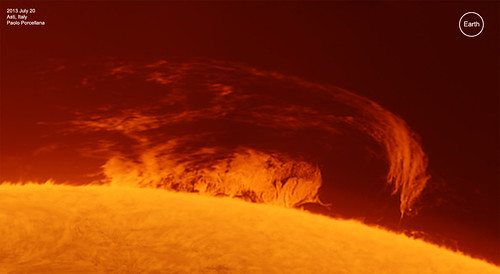
Prominence QHY5L-II 2013-07-20 by AstroPaolo, on Flickr
-
IanP
- Science Officer
- Posts: 135
- Joined: Fri Jan 06, 2012 5:21 am
- Location: Perth, Western Australia
- Contact:
Antares with Polarie, 60Da and 50mm lens
This image is the product of 2h of exposure captured in two sessions using POLARIE.
Here in Perth, Western Australia, the geographic and magnetic south differ only by approximately 1deg, so setting up the POLARIE is a piece of cake: a little bit more than 30deg (31.5) as the angle of elevation and almost in line south with a compass.
Here in Perth, Western Australia, the geographic and magnetic south differ only by approximately 1deg, so setting up the POLARIE is a piece of cake: a little bit more than 30deg (31.5) as the angle of elevation and almost in line south with a compass.
Last edited by IanP on Sat Jul 27, 2013 7:13 am, edited 1 time in total.
Re: Submissions: 2013 July
Snow in the Atacama desert, Andromeda galaxy over Magellan telescopes, and green airglow. Taken a few minutes after the moonset so the clouds over the Pacific ocean surface some 200km North-West where the Moon was still up were still highlighted by it thus creating a bright thin stripe along the horizon. Telescope domes left to right: 1-m Swope, 2.5-m Dupont, 6.5-m Magellan Clay, 6.5-m Magellan Baade.
Author: Igor Chilingarian (Harvard-Smithsonian Center for Astrophysics)
Equipment: Canon EOS 6D, Zeiss Distagon 21/2.8, stack of 10 15-sec exposures
When and where: 2013/Jul/21-22 at the beginning of morning astronomical twilight (~6:20am local time), Las Campanas Observatory, Chile.
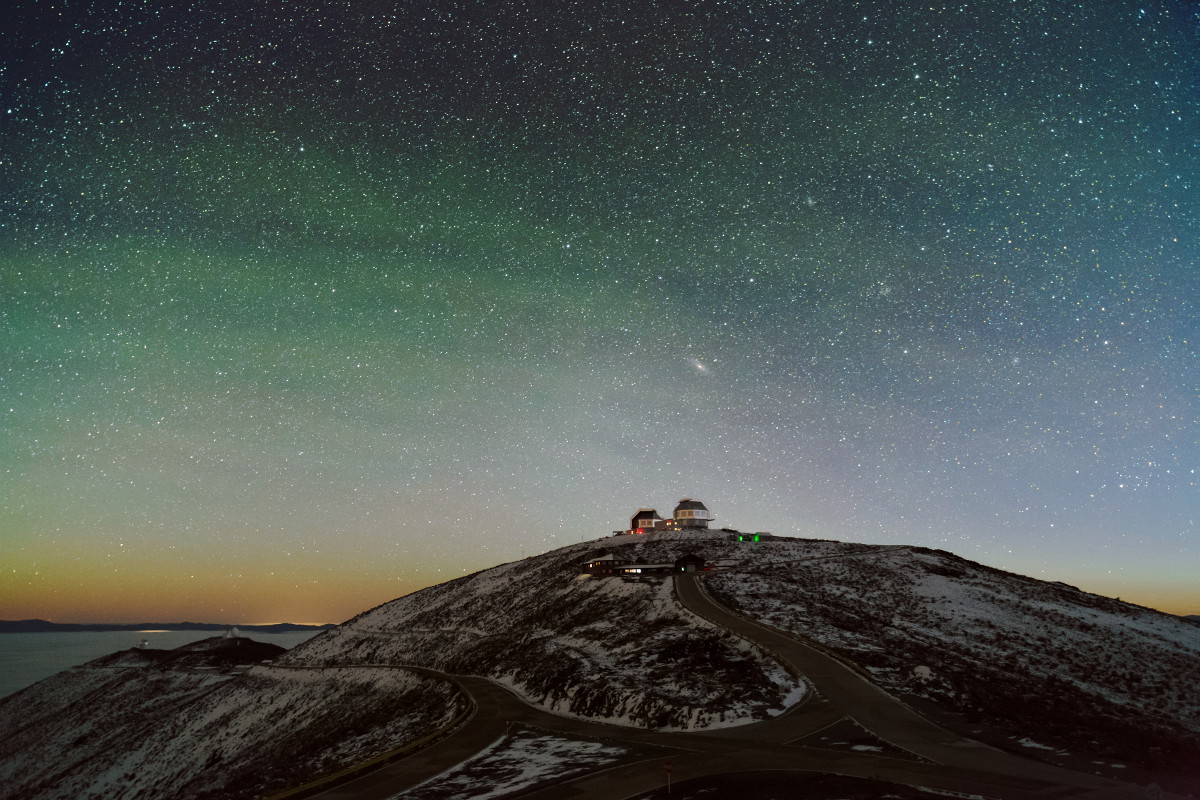
The high resolution version is available here: http://nice.sai.msu.ru/~chil/photo/LCO_ ... 130721.jpg
Author: Igor Chilingarian (Harvard-Smithsonian Center for Astrophysics)
Equipment: Canon EOS 6D, Zeiss Distagon 21/2.8, stack of 10 15-sec exposures
When and where: 2013/Jul/21-22 at the beginning of morning astronomical twilight (~6:20am local time), Las Campanas Observatory, Chile.

The high resolution version is available here: http://nice.sai.msu.ru/~chil/photo/LCO_ ... 130721.jpg
Re: Submissions: 2013 July
Pluto movement during 5 nights in July 2013.
3 images taken on the 8-10-12 of July when Pluto passed near the cluster Palomar 8 in Sagittarius.
Larger version:
http://www.pbase.com/tango33/image/151523845
Cheers,
Kfir Simon


3 images taken on the 8-10-12 of July when Pluto passed near the cluster Palomar 8 in Sagittarius.
Larger version:
http://www.pbase.com/tango33/image/151523845
Cheers,
Kfir Simon


Re: Submissions: 2013 July
Milky Way Arch & Magellanic Clouds over Kalahari Desert, Namibia, July 2013
http://www.sternklar.ch/images-webpages ... Jul-13.htm
Copyright: Manuel Jung
http://www.sternklar.ch/images-webpages ... Jul-13.htm
Copyright: Manuel Jung
Re: Submissions: 2013 July
Comet ISON from Hubble
http://hubblesite.org/newscenter/archiv ... 1/image/a/
Credit: NASA, ESA, and the Hubble Heritage Team (STScI/AURA)
http://asterisk.apod.com/viewtopic.php? ... 49#p203949
http://hubblesite.org/newscenter/archiv ... 1/image/a/
Credit: NASA, ESA, and the Hubble Heritage Team (STScI/AURA)
http://asterisk.apod.com/viewtopic.php? ... 49#p203949
-
Astromontufar
- Science Officer
- Posts: 234
- Joined: Sun Dec 23, 2012 3:07 am
- Location: Guatemala
- Contact:
Re: Submissions: 2013 July
Milky Way
A Milky Way paiting.
Copyright. Sergio Montúfar
A Milky Way paiting.
Copyright. Sergio Montúfar
Sergio Emilio Montúfar Codoñer
pinceladasnocturnas.com
pinceladasnocturnas.com
-
Evangelos Souglakos
Re: Submissions: 2013 July
VDB149, VDB150
http://astro.karvouno.org/wp-content/up ... 24x748.png
by Evangelos Souglakos
Details: http://astro.karvouno.org/?p=349
by Evangelos Souglakos
Details: http://astro.karvouno.org/?p=349
Last edited by bystander on Sat Jul 27, 2013 2:11 pm, edited 1 time in total.
Reason: please, no hot links to images > 400kb (file size), uploaded jpg image as attachment
Reason: please, no hot links to images > 400kb (file size), uploaded jpg image as attachment
-
Turnit Tops
- Ensign
- Posts: 38
- Joined: Thu Jun 27, 2013 8:26 am
Re: Submissions: 2013 July
Copyright: K. Rhode, M. Young and WIYN/NOAO/AURA/NSF
Caption: WIYN/NOAO: M51, the Whirlpool Galaxy, seen with new ODI Camera on WIYN Telescope
Full story: http://www.noao.edu/news/2013/pr1309.php
----------------------------------------------------------
Caption: To mark the 44th anniversary of the first man on the Moon, the astronomical group ¨ASTROTECNO¨, made a rocket festival in the town of Calimaya, State of Mexico. The Saturn V, owned by the engineer Rafael Lopez Velez, was the special guest of the event.
The rocket and its platform were accompanied by a midday Sun, with its majestic Halo.
Photographer: Juan Miguel Castillo Navarro
Camera: Nikon D5100 Lens: DX ED Fisheye 10.5 mm
Date: July 21, 2013
Astronomical Group: ASTROTECNO and PERSEO
----------------------------------------------------------
Copyright: John Chumack (http://www.galacticimages.com)
Caption: Albireo, also known as Beta Cygni appears to the unaided eye to be a single star of magnitude 3 in the Constellation of Cygnus, but through a telescope, even low magnification views resolve it into a double star. The brighter Golden yellow star (actually itself a very close binary System) makes a striking colour contrast with its fainter blue companion star.
The Golden Star Albireo(component A at magnitude 3.3) & the Blue star(component B at magnitude 5.5) system are not a physically connected system, the Blue star is actually twice as far away as the Golden Yellow one, just happens that “line of sight” makes this a pair. Albireo is located about 430 light years from Earth!
Certainly Albireo is one of the Finest examples of a Colorful Double Star Pairing!
Separated by 35 seconds of arc, the two components provide one of the best contrasting double stars in the sky due to their different colors.
Often Albireo (aka Beta Cygni) is the first light target for many with new telescopes!
I captured this shot from my backyard in Dayton, Ohio last night on 07-25-2013, at the Prime focus of a 10” dia. telescope & Canon Rebel Xsi DSLR, ISO 400, 1 minute exposure unguided.
Here is some more information on Albireo written by my good friend Dr. Jim Kaler. http://stars.astro.illinois.edu/sow/albireo.html
----------------------------------------------------------
Copyright: Adam Block
Caption: Here is the latest rendition of the Crab Nebula supernova remnant:
http://skycenter.arizona.edu/gallery/Ne ... CrabNebula
It is always very difficult to present objects like this that are so well-known in a way that still offers something (anything!) new. In this image I concentrated on enhancing the nebula with H-alpha data as well as maintaining the very fine blue/green filamentary structure *within* the nebula. This feature is generally overwhelmed when blending H-alpha data.
Additionally I went ahead and created an animation that blinks this image with an image taken in 1999 by ESO's VLT. You can see the video on Vimeo here:
Finally the creation of this image was recorded to become a tutorial on H-alpha blending available at the SkyCenter website.
Caption: WIYN/NOAO: M51, the Whirlpool Galaxy, seen with new ODI Camera on WIYN Telescope
Full story: http://www.noao.edu/news/2013/pr1309.php
----------------------------------------------------------
Caption: To mark the 44th anniversary of the first man on the Moon, the astronomical group ¨ASTROTECNO¨, made a rocket festival in the town of Calimaya, State of Mexico. The Saturn V, owned by the engineer Rafael Lopez Velez, was the special guest of the event.
The rocket and its platform were accompanied by a midday Sun, with its majestic Halo.
Photographer: Juan Miguel Castillo Navarro
Camera: Nikon D5100 Lens: DX ED Fisheye 10.5 mm
Date: July 21, 2013
Astronomical Group: ASTROTECNO and PERSEO
----------------------------------------------------------
Copyright: John Chumack (http://www.galacticimages.com)
Caption: Albireo, also known as Beta Cygni appears to the unaided eye to be a single star of magnitude 3 in the Constellation of Cygnus, but through a telescope, even low magnification views resolve it into a double star. The brighter Golden yellow star (actually itself a very close binary System) makes a striking colour contrast with its fainter blue companion star.
The Golden Star Albireo(component A at magnitude 3.3) & the Blue star(component B at magnitude 5.5) system are not a physically connected system, the Blue star is actually twice as far away as the Golden Yellow one, just happens that “line of sight” makes this a pair. Albireo is located about 430 light years from Earth!
Certainly Albireo is one of the Finest examples of a Colorful Double Star Pairing!
Separated by 35 seconds of arc, the two components provide one of the best contrasting double stars in the sky due to their different colors.
Often Albireo (aka Beta Cygni) is the first light target for many with new telescopes!
I captured this shot from my backyard in Dayton, Ohio last night on 07-25-2013, at the Prime focus of a 10” dia. telescope & Canon Rebel Xsi DSLR, ISO 400, 1 minute exposure unguided.
Here is some more information on Albireo written by my good friend Dr. Jim Kaler. http://stars.astro.illinois.edu/sow/albireo.html
----------------------------------------------------------
Copyright: Adam Block
Caption: Here is the latest rendition of the Crab Nebula supernova remnant:
http://skycenter.arizona.edu/gallery/Ne ... CrabNebula
It is always very difficult to present objects like this that are so well-known in a way that still offers something (anything!) new. In this image I concentrated on enhancing the nebula with H-alpha data as well as maintaining the very fine blue/green filamentary structure *within* the nebula. This feature is generally overwhelmed when blending H-alpha data.
Additionally I went ahead and created an animation that blinks this image with an image taken in 1999 by ESO's VLT. You can see the video on Vimeo here:
Finally the creation of this image was recorded to become a tutorial on H-alpha blending available at the SkyCenter website.
-
elettrorider
- Ensign
- Posts: 15
- Joined: Mon Mar 14, 2011 12:50 pm
Re: Submissions: 2013 July
M39, Open Cluster
More info http://www.stefanofocosi.altervista.org/M39_2013.html
Hi-res http://www.stefanofocosi.altervista.org ... 013_Hi.jpg
Copyright: Stefano Focosi
More info http://www.stefanofocosi.altervista.org/M39_2013.html
Hi-res http://www.stefanofocosi.altervista.org ... 013_Hi.jpg
Copyright: Stefano Focosi
-
lynnhilborn
- Ensign
- Posts: 61
- Joined: Mon Dec 05, 2011 6:17 pm
- Location: Grafton, Ontario
- Contact:
Cocoon and M39 Super Wide
Higher Res here http://www.nightoverontario.com/Astrono ... &lb=1&s=X3
Canon 200mm f2.8 lens and FLI ML8300 camera
Thanks for looking
Lynn Hilborn
Canon 200mm f2.8 lens and FLI ML8300 camera
Thanks for looking
Lynn Hilborn
